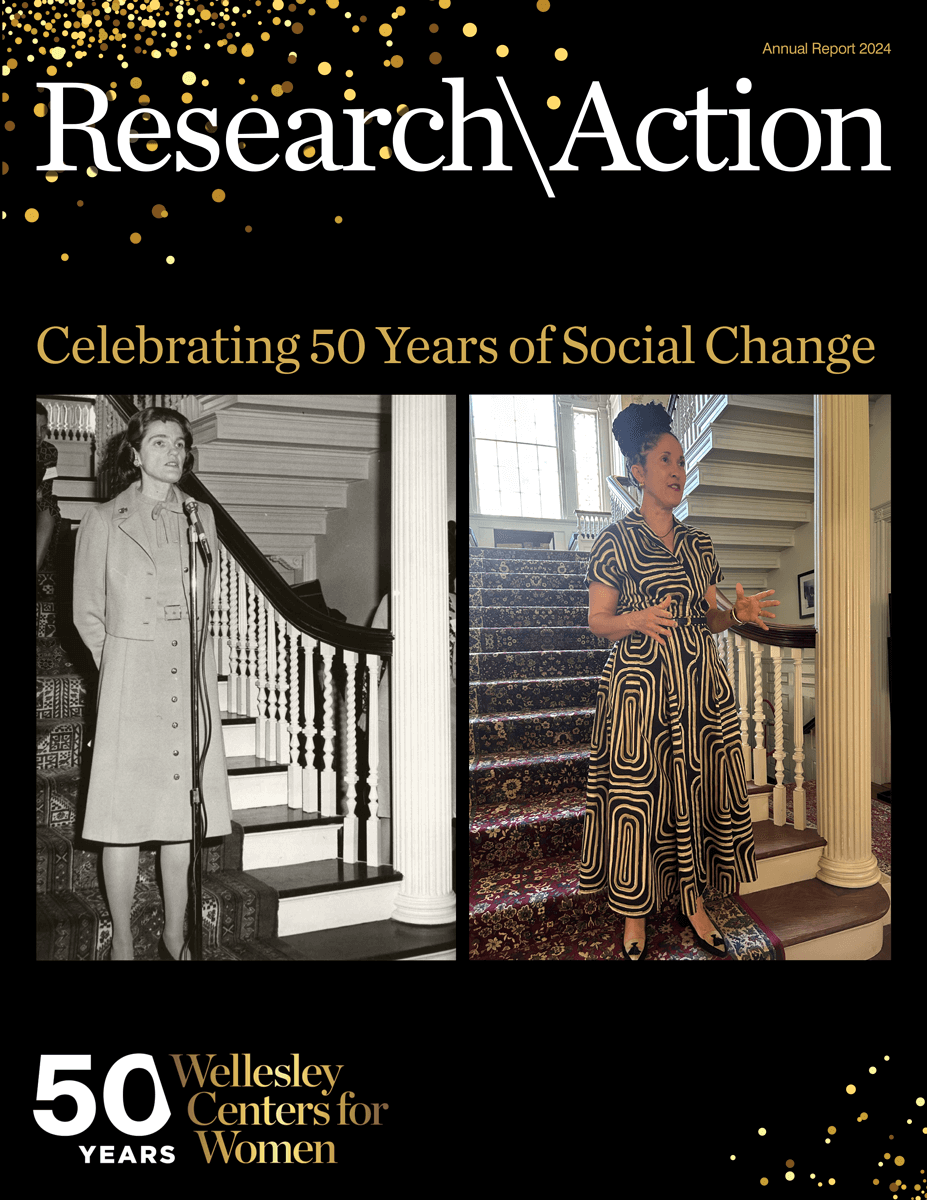Family, Sexuality, and Communication Research Initiative
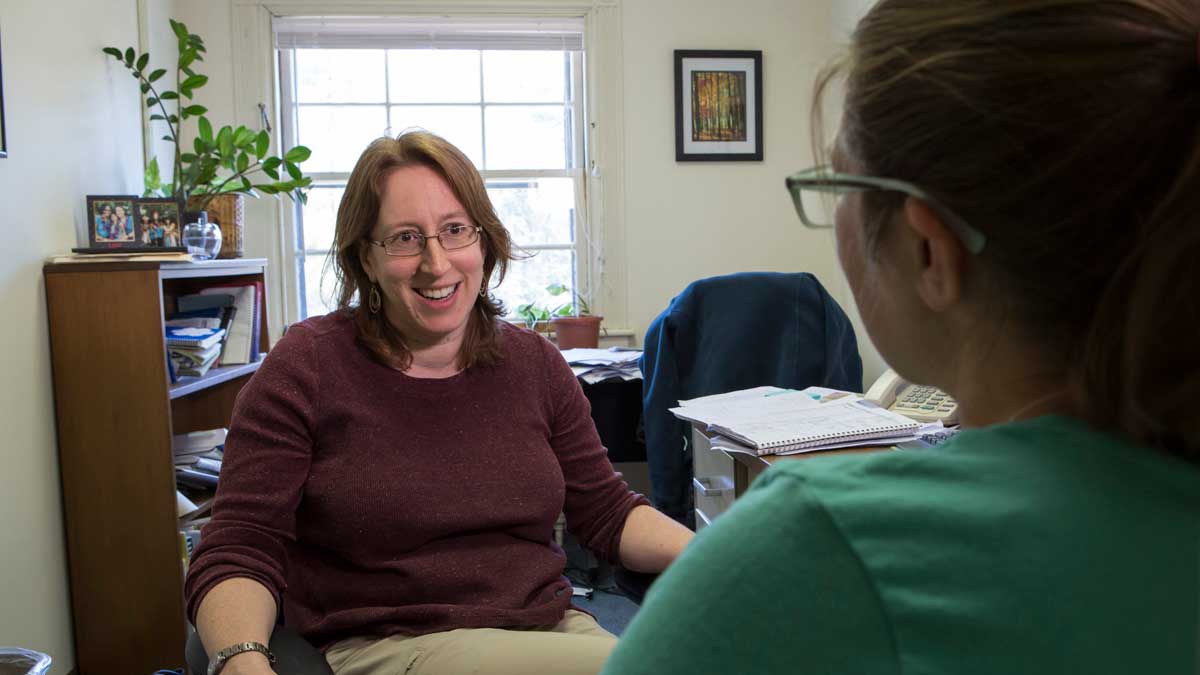
Then: Beginning in the 2010s, WCW’s research has investigated who teens talk to about sex and what they are talking about—and what effect those conversations have on teens’ decision-making down the road about sex and relationships. Among the groundbreaking findings are that fathers have an important role to play in their teens’ sexual health, and that teens often talk about sex and relationships with their extended families as well as with their parents. WCW also evaluates sex education programs to see if they are effective in changing teens’ sexual knowledge, attitudes, and behaviors.
Now: Senior Research Scientist Jennifer M. Grossman, Ph.D., is now developing and piloting an intervention program to help fathers talk to their kids about sex and relationships. Funded by the Eunice Kennedy Shriver National Institute of Child Health & Human Development of the National Institutes of Health, the program includes unique components that fathers requested in a needs assessment, such as a peer support group where they can ask each other questions and share advice. This project is significant because few interventions support fathers’ talk with their teens about sexual topics, even though these conversations can promote teens’ health.
Youth, Media & Wellbeing
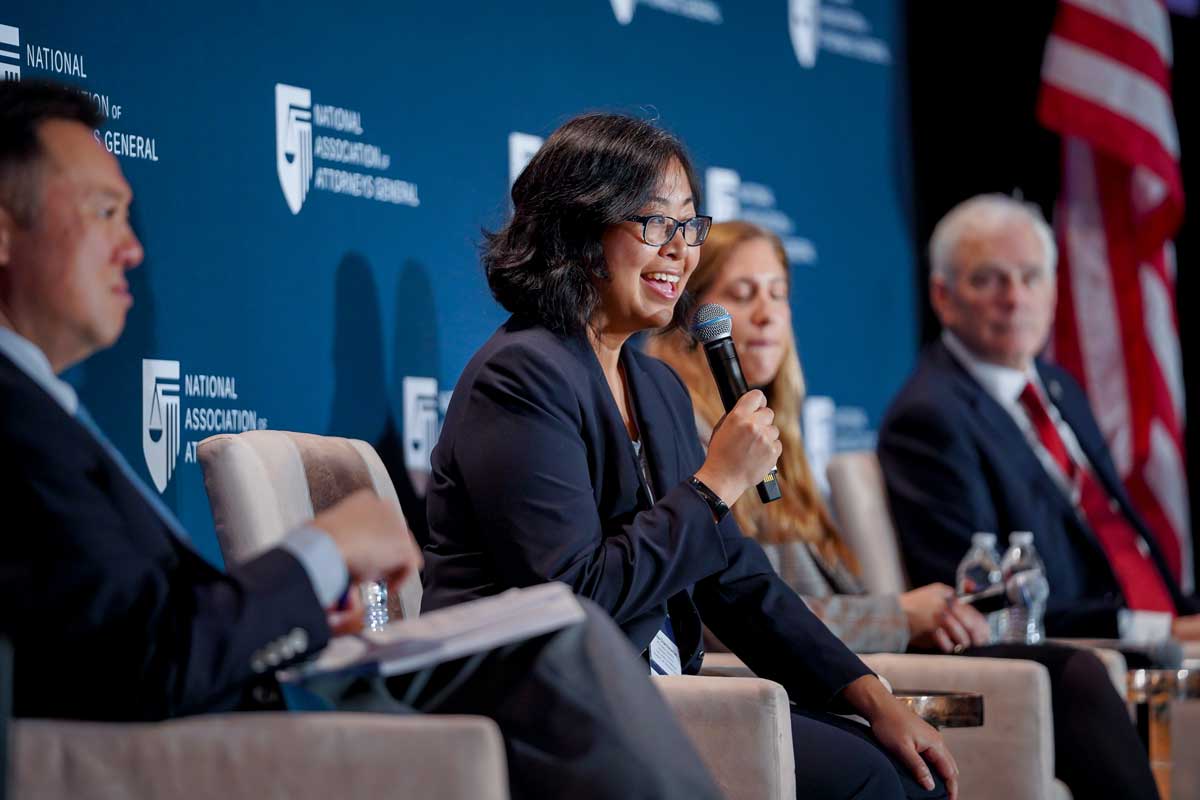
Then: WCW’s studies on the effects of digital media on the health and wellbeing of children and teens were included in the American Psychological Association’s 2023 health advisory (and 2024 advisory update) on social media use in adolescence. The U.S. Surgeon General referenced this APA advisory in his 2023 advisory on protecting youth mental health as well as the Youth, Media & Wellbeing Research Lab’s book chapter, “Marginalized Youth Using Digital Media.” Amidst a crisis of depression and anxiety among young people, the research conducted by the lab—founded in 2018—provides hard data about the nuanced role social media and smartphones play.
Now: In 2024, Senior Research Scientist Linda Charmaraman, Ph.D., expanded the Youth, Media & Wellbeing Research Lab’s digital wellbeing workshops to reach more girls. In the spring, the lab piloted a virtual afterschool workshop club facilitated by near-peer mentors, with session themes including deceptive design and AI, mental health and emotional regulation, and marginalized identities. The club served as a safe space for middle school girls and their allies to talk about digital wellbeing in order to enhance their self-awareness, self-care, and healthy online interactions. Though the local Metrowest Boston area community was especially welcome to participate, the club was open to anyone with internet access anywhere in the world and free of charge to families.
The Motherhood Penalty and the Fatherhood Premium
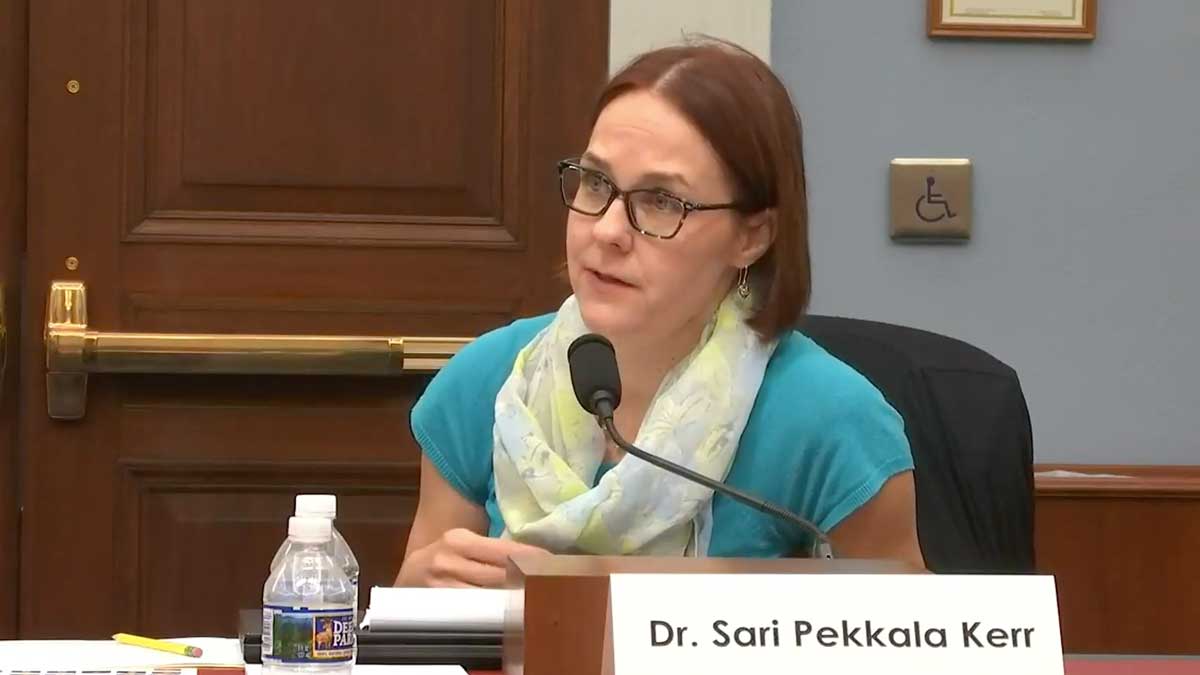
Then: WCW’s studies on women’s earnings over the life cycle showed that when children get older, mothers can increase their work hours again—but they are never able to catch up to the earnings of fathers, who experience a “fatherhood premium” that gives them a lifetime advantage. These findings position employers, policymakers, and others to critically analyze gender pay gaps and find solutions that create gender pay equity. The work on the “motherhood penalty” was recognized with a Nobel Prize for economist Claudia Goldin, Ph.D.—a frequent WCW collaborator—in 2023.
Now: In 2024, Senior Research Scientist Sari Pekkala Kerr, Ph.D., and her colleagues Claudia Goldin, Ph.D., and Claudia Olivetti, Ph.D., published another article about the parental pay gap over the life cycle. With more data and richer analyses, the researchers delved deeper into why this gap remains substantial. The researchers found that women, especially mothers, seem willing throughout their working lives to trade lower pay for more flexibility, whereas fathers—particularly those working in time-intensive jobs—manage to expand their relative earnings gains as their children age.
Depression Prevention/Mental Health
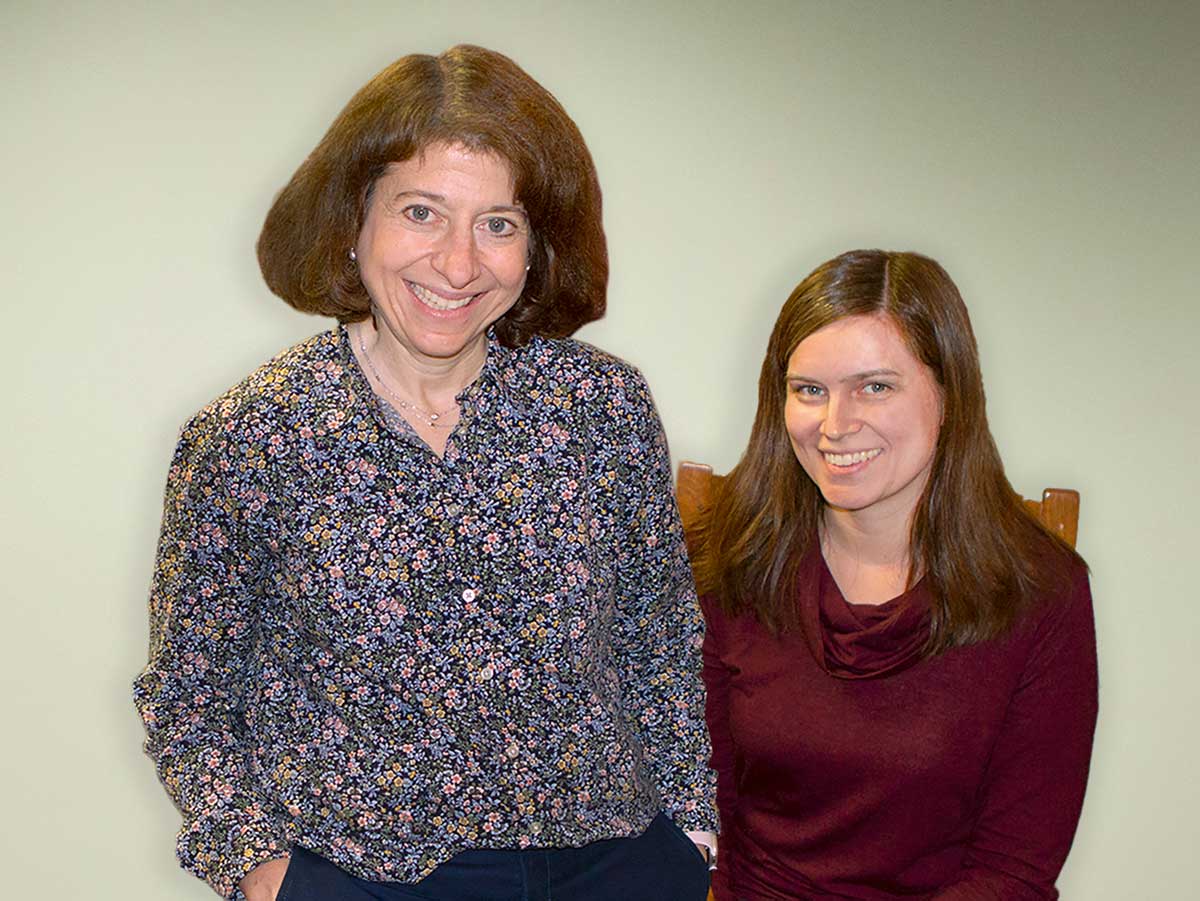
Then: Beginning in the 2010s, WCW’s studies showed that internet-based depression prevention programs could be effective for at-risk adolescents and their families. These are a game-changing tool in combating the youth mental health crisis in the U.S., especially at a time when there are not enough practitioners to meet the demand. Technology can be effective at preventing mental health issues before they start.
Tracy Gladstone, Ph.D., Katherine R. Buchholz, Ph.D. with collaborator Benjamin Van Voorhees, M.D., Ph.D.
Now: In late 2023, Research Scientist Katherine R. Buchholz, Ph.D., and her colleague, Tiffany Artime, Ph.D., were awarded $2.5 million by the Patient-Centered Outcomes Research Institute (PCORI) to implement an evidence-based treatment for post-traumatic stress disorder (PTSD) in university counseling centers. The treatment has demonstrated efficacy in several randomized controlled trials and across many populations exposed to trauma. Buchholz and her team are now adapting and implementing it at colleges across the United States.
Justice and Gender-Based Violence Research Initiative
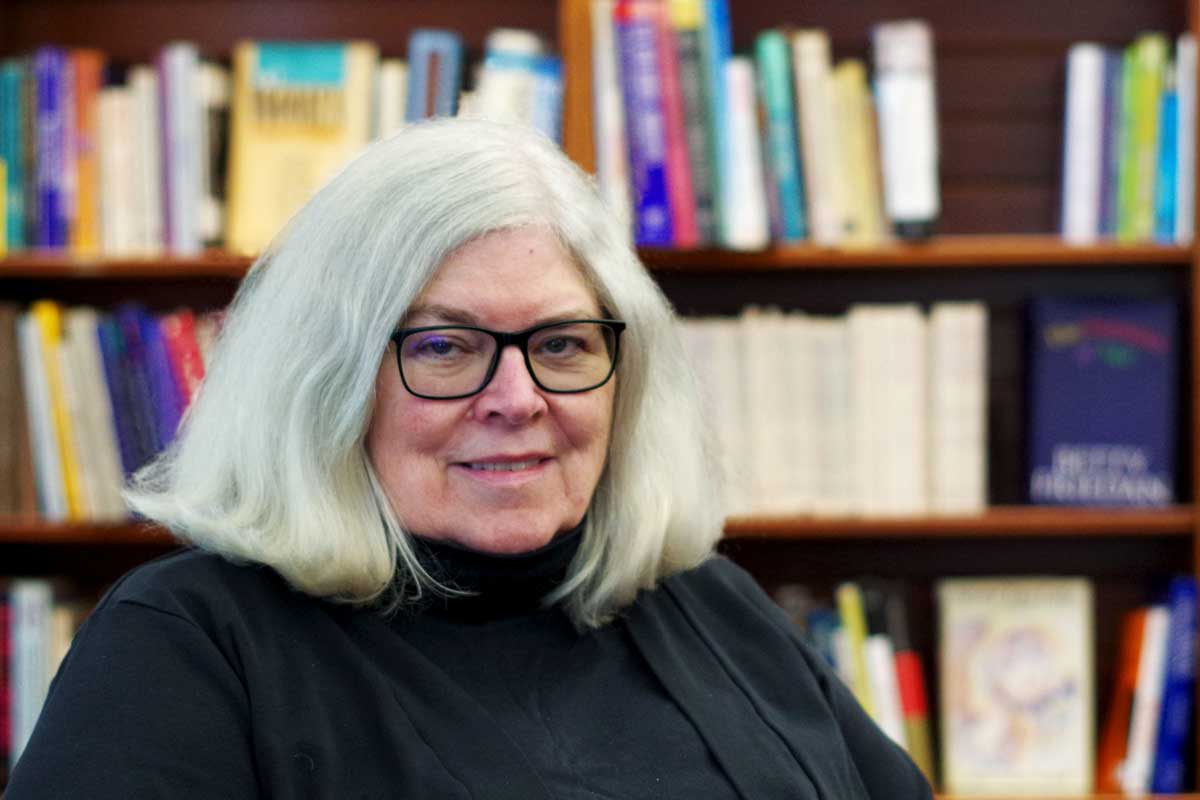
Then: Since 1996, WCW has conducted and disseminated research that examines the causes and consequences of gender-based violence and the social, health, and justice system responses to violent crime and victimization. This work, which was formalized as the Justice and Gender-Based Violence Research Initiative in 2015, is built on the premise that research is a critical part of social change and that linking research, theory, and action will increase the impact on issues of justice that are critical to women and girls.
Now: Senior Research Scientist Linda M. Williams, Ph.D., is now working on a narrative nonfiction book that weaves together stories from the hundreds of women and girls she has interviewed over the course of her career as a sociologist studying sexual and gender-based violence. The book is motivated in part by the urging of one survivor, who pled with her that “somebody’s gotta hear my story,” and in part because after 50 years, Williams sees the need for more than statistics and academic articles to confront rape culture.

